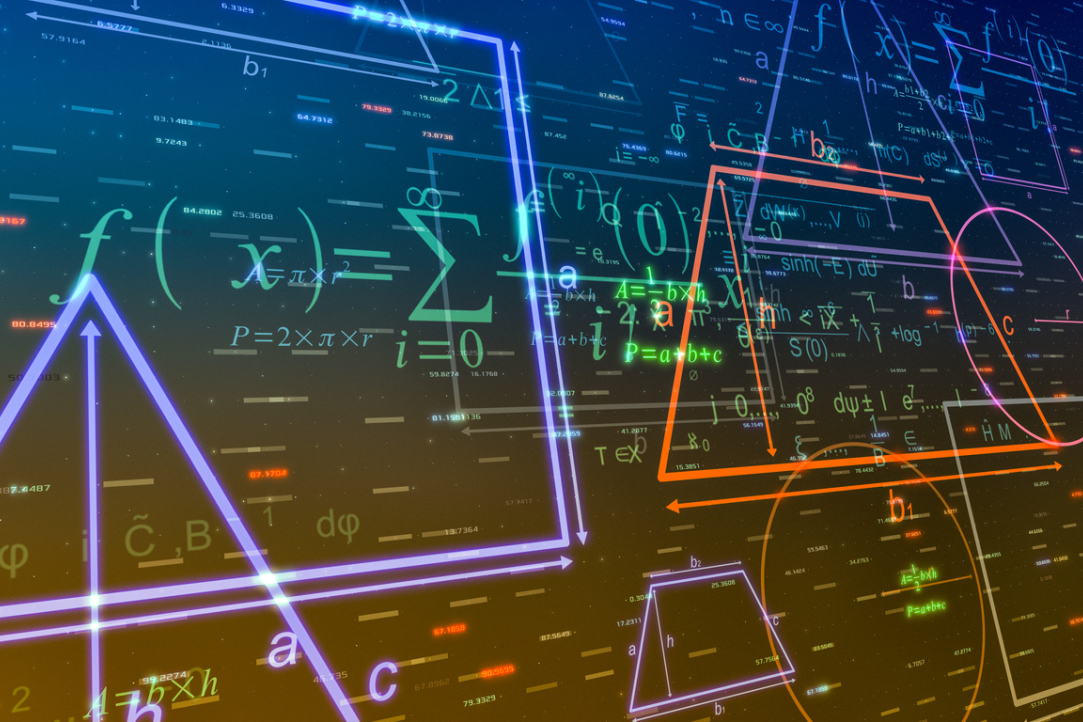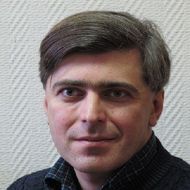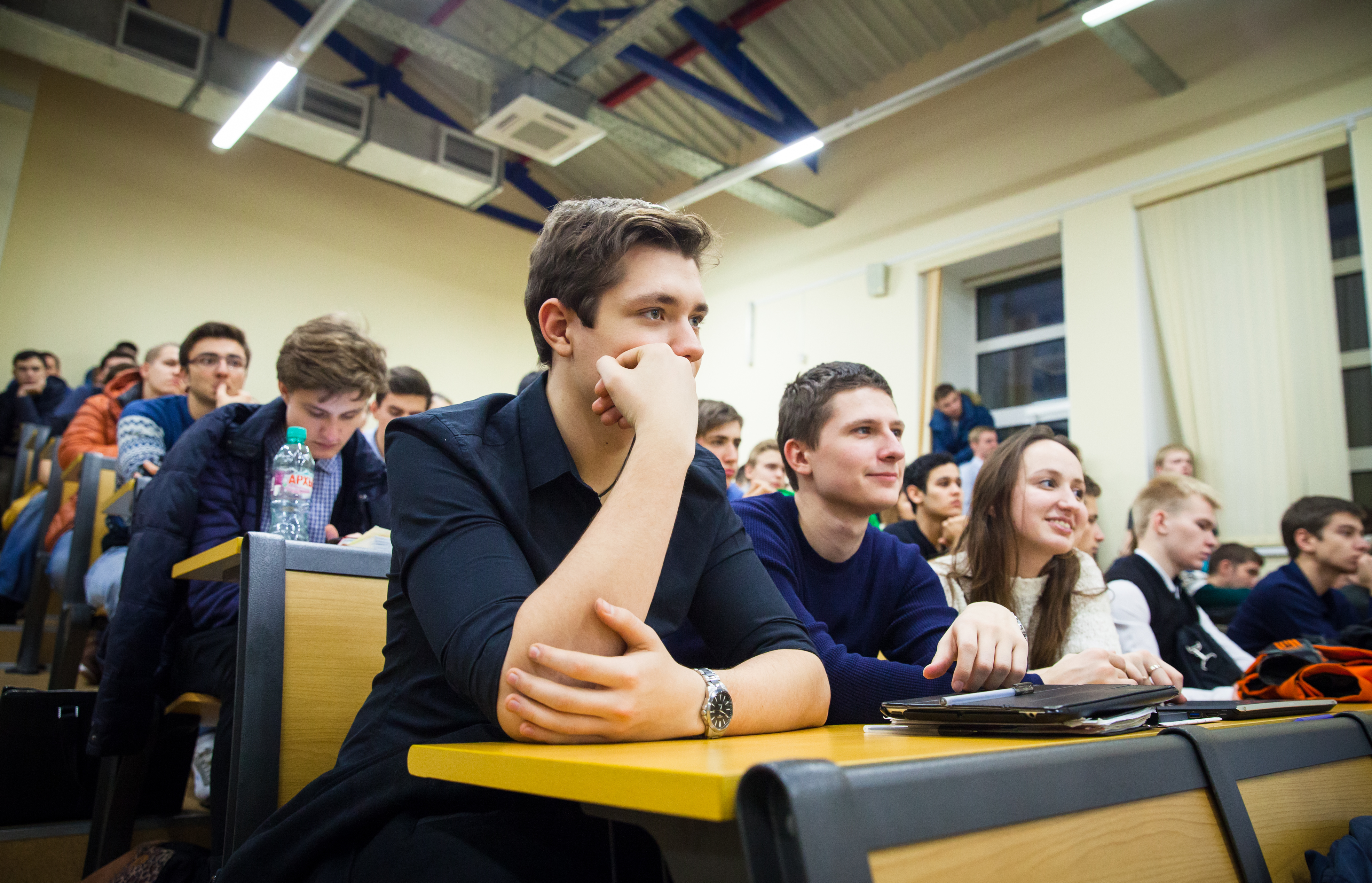‘We Managed to Create Another Centre of Mathematical Life in Moscow’

In celebration of Russia’s Year of Science and Technology, we continue our series about HSE University’s international laboratories, which are headed by world-class scientists and scholars. The first of these, the Laboratory of Algebraic Geometry and Its Applications, was established in October 2010. Below, Laboratory Head Dmitry Kaledin discusses the Lab’s history, research, achievements, and current activities.
Breaking Down Barriers
In the 2000s, when HSE was gradually transforming from a university of economics into a multidisciplinary university, mathematics became one of its new areas of development. In 2009, the Faculty of Mathematics was established, and HSE soon became well recognized in the world of mathematics. In turn, Moscow mathematicians got something without which any scientific field degenerates and perishes — the opportunity to educate young people. Moreover, they got to do so in a supportive environment while maintaining rigorous standards.

Dmitry Kaledin
When a team of mathematicians led by Professor Fedor Bogomolov decided to apply for a mega-grant from the Russian government (Resolution No. 220) in 2010, HSE University was a logical choice as the institution that should host the lab. We won a grant, the Laboratory of Algebraic Geometry and Its Applications appeared at HSE, and Professor Bogomolov became its academic supervisor.
Algebraic geometry is a relatively young, high-tech field, and, as it has turned out over the past 40 years, it is closely related to a variety of areas of mathematics. We can say that this is one of the centres of modern mathematics. There is a Moscow school of algebraic geometry, which dates back to the renowned mathematicians Igor Shafarevich and Yuri Manin. A distinctive feature of the Moscow and the Soviet school in general is the desire for universality and the breaking down of barriers.
30 or 40 years ago, Soviet mathematics in a number of areas was ahead of the rest of the world by 10-20 years, and in modern science this is almost an eternity. Now we are not so strong: for quite some time in post-Soviet Russia, mathematics went without any funding to speak of, and there are now fewer of us. However, the professional community works to ensure that this is not reflected in the quality of our work. Science is not a zero-sum game. Everyone benefits from everyone’s achievements.
Employees and Interns
The recognized and enduring leader of our team is Fedor Bogomolov, a brilliant and unusual mathematician and a visionary. He is the founder of new areas in the field and one of the strongest and most successful representatives of the Moscow school of algebraic geometry. He is the keeper of its living traditions. In the early 1990s, he went to the West, to New York University, but he never broke off ties with his Moscow colleagues. He remained an affiliated employee at the Steklov Mathematical Institute of the Russian Academy of Sciences. He regularly came to Moscow, followed what was happening here, and tried to help. He always had clear ideas of what to do, and funding under the 220th resolution made it possible to implement them.
The Laboratory is essentially managed collectively. All serious issues are resolved by consensus with the approval of the supervisor. The previous head of the Laboratory, Alexander Kuznetsov, introduced a reasonable division of the Lab’s research into five main areas (later, our work was divided into four areas). Five to ten colleagues work in each area under the supervision of an area-specific supervisor. The Lab also created an Expert Council, includes some of the world’s most renowned mathematicians — this was an idea we borrowed from the Moscow Independent University.
Almost all the ‘adult’ members of our laboratory are world-class researchers. They work here part-time, either internally or externally (I am based at the Steklov Institute). From the very beginning, more than half of the Laboratory’s staff have been junior research fellows, whom we recruit among graduate students or particularly strong undergraduate students (say, who have authored published articles) in a competitive selection process. Basically, we hire a lot of junior fellows from the HSE Faculty of Mathematics. The salary they earn is not high, but it’s not bad for a young person. We have no formal requirements for our fellows, but we have informal ones: they are expected to actively participate in the life of the laboratory, that is, in seminars and conferences, as well as conduct their own research.
Judging by our previous selection processes, a junior research fellowship at the Laboratory of Algebraic Geometry and its Applications is highly sought after and is considered to be prestigious at the HSE Faculty of Mathematics. Students view it as a kind of mark of quality.
Seminars, Summer Schools, Conferences
Oddly enough, the technical parameters of our work have not changed much over the past ten years. It seems the formats we settled upon from the start have been successful.
The financial costs of the development of mathematical science are, by definition, small — only philosophy is cheaper. We don’t need expensive equipment or even lab coats. Seminars, usually weekly ones, are the traditional way of organizing a mathematical community. People meet to discuss a more general or more specific topic, in Russian or English, depending on the participants.
In the early 1980s, at the peak of mathematical life in Moscow, its centre was Israel Gelfand’s seminar, and its focus, strictly speaking, was all mathematics. It will hardly be possible to reproduce that seminar now, but we are moving in this direction. For the tenth year now, our seminar has been held every Friday, and we cover a wide range of topics. I would like to believe that it has become one of the important elements of the mathematical sphere in Moscow.
In parallel, on Thursdays, the Lab hosts a student seminar, which is organized by the students themselves. Here you do not need to talk about your own results, but you can parse other articles by others in the field that important and interesting. This is useful, and I myself periodically learn something new at this seminar.
We consider it an important task to involve students in research work, and the seminars help not only our junior research fellows, but also all the students and graduate students who attend them
The members of the Laboratory develop formal advanced courses for Master’s and undergraduate students. For example, Misha Verbitsky leads popular courses on hyperkähler manifolds and Hodge theory.
As a continuation of the seminars, we organize student schools. First and foremost is our big annual summer school in Yaroslavl, which features renowned speakers, including Fields Medal holders, and a fairly large number of students from all over Russia. The School was created on the initiative of Fedor Bogomolov, who was guided by similar schools of the 1970s. Thus, we go beyond HSE and Moscow, establish contacts with strong students from other cities, and once again make sure that there are strong students not only in the capital.
Two or three times a year we hold conferences on specific topics with a large number of international participants. And our employees, in turn, regularly travel to present their research at other conferences, sometimes in Russia, though more often abroad.
A Centre of Gravity
In ten years we have managed to create another centre of mathematical life in Moscow, a centre of gravity that complements the existing ones and occupies a niche that was empty before. Our laboratory is a place where there is real scientific life, where we love what we do and inevitably get results: whether they be in the form of proven theorems or published articles.

The Lab has been home to several generations of junior research fellows. Most of them have become quite successful mathematicians, and many have gone on to pursue doctoral degrees abroad (at Harvard, MIT, Chicago, and others). Some have already completed their graduate studies. This is also an important result for us. Our first and (so far) only fellow to become a teacher at HSE is Nina Sakharova. She came to the Laboratory in 2010, defended her dissertation, and now she works at the Department of Higher Mathematics, where she has been recognized as a Best Teacher six times already. There are no other examples yet, since the development of a serious mathematician who is prepared to teach students at a university of HSE’s level usually takes more than ten years. But I am sure that there will be many more.
Many of those who have worked as junior research fellows value their connection with the Laboratory and, as for as long as possible, continue to participate in its life. For these colleagues, we have devised the status of ‘associate members’.
However, it soon turned out that many experienced mathematicians who had left Moscow, or foreigners, such as Wendy Loven, a professor at the University of Antwerp, with whom we have several joint projects, want to work with us in the same format. This status does not bring any formal preferences or a salary, but we ask that affiliated members indicate the Lab as an affiliation on publications. This is prestigious in itself and further bolsters colleagues’ professional reputations.
Another format of cooperation typical for the Laboratory is inviting guests. Most of the ‘adult’ members who are well connected in the world of mathematics conduct joint projects with eminent foreign colleagues. If there is an opportunity to invite them to Moscow for a couple of weeks or a month, we willingly use it to engage with each other on our joint work more closely. A guest of the Laboratory gives a talk at our seminar, actively participates in it, and gets to know both HSE and the mathematics sphere of Moscow. As a rule, our guests leave with positive impressions. Many of the joint articles included in our annual reports were written or revised during these visits. In October of the year before last, Charles Favre, a French mathematician at Ecole Polytechnique, even gave students a short course in arithmetic dynamics.
The coronavirus outbreak last year disrupted some of our plans — many events had to be transferred online. In general, the transition to remote cooperation in Russia was rather smooth. We are now holding our seminar over Zoom, and presentations are scheduled two weeks in advance. Speakers include former junior research fellows who are in quarantine around the world and miss on-site academic life. By the will of fate, Fedor Bogomolov ended up in Moscow at the beginning of the pandemic, which was probably not bad compared to New York. He got the hang of Zoom right away, and we periodically discussed mathematical problems over the phone. Our junior research fellow, Konstantin Loginov, was one of the first at HSE to defend his Ph.D. thesis entirely remotely.
I already have a rough idea of who I would like to see as junior fellows at our lab in the next academic year. I hope they will join us.
The Algebraic Geometry Laboratory was the first laboratory opened under the International Laboratories project in 2010.
Over 10 years of activity:
More than 555 emerging mathematicians (including students and graduate students) from all over Russia have attended the Laboratory’s reputed Algebra and Geometry Summer School in Yaroslavl, which was launched in 2011.
More than 65 major international conferences and symposia have been held.
More than 450 presentations have been made at international conferences and seminars.
Today in the laboratory:
more than 60% of employees are under 40;
more than 90% of publications are in upper-quartile journals;
two Lab members were invited to present reports at the highly prestigious International Mathematical Congress 2018;
In 2022, the Laboratory plans to organize the Satellite Conference of the International Mathematical Congress 2022 ‘INTEGRABLE SYSTEMS AND GEOMETRY OF MODULI SPACES’.
In 2017, in recognition of Professor Fedor Bogomolov’s significant contribution to the Laboratory in his capacity of academic supervisor, HSE University awarded him the Medal for Contributions to Science and Education.
#HSEresearch10
The Creation and Support of International Research Laboratories Project of HSE University celebrated its 10th anniversary last year. The first international laboratories appeared at HSE in 2010. The impetus for their creation was the Russian Government Decree No. 220 ‘On measures to attract leading scientists to Russian educational institutions of higher professional education.’ Today, the University has 50 laboratories, including 43 on the Moscow campus, and 2 centres of excellence (which are larger in size but governed by the same principles in their work). 10 laboratories were created with support from mega-grants awarded under Resolution 220, and 40 were launched under the aegis of HSE University. Recognized world-class scholars and scientists work in the laboratories alongside Russian researchers. They assemble teams of emerging researchers and involve students in hands-on research. International conferences and seminars held by the laboratories play a crucial role in bolstering HSE’s profile in the international academic arena.
Misha Verbitsky
Aleksandr Kuznetsov
See also:
HSE University Wins Two Medals at the International Mathematics Competition for University Students
Two students, one graduate and one undergraduate, from the HSE Faculty of Computer Science (FCS) programme in ‘Applied Mathematics and Information Science’ won prestigious awards at the International Mathematics Competition for University Students (IMC). Graduate Maksim Kazadaev and first-year student Daria Linichenko both represented HSE University at the IMC, winning gold and silver medals respectively.
Prepare for the INTO HSE Olympiad with HSE Students
Winners of the INTO HSE International Maths Olympiad receive scholarships and admission offers to 37 different programmes at HSE University. Angelina Yudina, a master's student and invited instructor of maths at the Faculty of Economic Sciences, offers a video lesson where she analyses the demo version of the maths problems from the Olympiad.
Immortal Cells and Mathematics Reveal Mechanism behind Coronavirus Infection
A mathematical model has helped describe the course of infection caused by two variants of coronavirus: Omicron and Delta, and explain the differences between them. It appears that the cell entry rate is lower for Omicron, allowing infected cells ample time to alert neighbouring cells of the threat and trigger the activation of their innate immune response. In the future, the developed model could be employed to investigate any other variant of COVID-19, potentially leading to effective strategies for combating new hazardous strains, such as Pirola and JN.1. The findings from the study conducted with the participation of HSE researchers have been published in PeerJ.
Mathematicians Reveal the Mechanism behind Neuron Synchronisation: Hyperchaos
Scientists of the International Laboratory of Dynamic Systems and Applications at HSE Campus in Nizhny Novgorod have described a rare case of synchronisation in a system of chemically coupled neuron models. The study findings enable a mathematical description of atypical brain functioning modes, including those associated with neurodegenerative diseases. The study has been published in Regular and Chaotic Dynamics.
‘The Joy of Science Lies in the Euphoria of Learning’
For Elena Nozdrinova, mathematics is her life's work and a realm where she discovers universal order and harmony. In her interview with the HSE Young Scientists project, she speaks about dynamical systems, the Nizhny Novgorod scientific school, and favourite pastimes that help her grow.
HSE Scientists Unveil New Findings Regarding Stability of Communication Systems
Researchers from the International Laboratory of Dynamical Systems and Applications at the HSE Campus in Nizhny Novgorod have discovered that the use of systems with hyperbolic solenoid attractors and repellers can lead to issues in the transmission of communication signals. The findings of this study have been published in Results in Mathematics. The research was financed by a substantial grant from the Russian Government as part of the 'Science and Universities' National Project and a further grant from the Russian Science Foundation.
Monsters of the Deep: HSE Scientists Have Compiled a Catalogue of Rogue Waves
Rogue waves, or killer waves, are abnormally high and deadly waves that can emerge unpredictably in open seas and along shorelines. They pose an imminent deadly threat to everyone from colossal liners and pleasure yachts to seafarers and vacationers. Scientists from the HSE campus in Nizhny Novgorod Efim Pelinovsky and Ekaterina Didenkulova have assembled a catalogue of such phenomena that occurred in the World Ocean from 2011 to 2018, identifying the areas where they are frequently documented and inflict the most substantial damage.
Students of Engineering and Mathematics School Present First Project Results
Students of the Engineering and Mathematics School (EMS) launched by HSE University and VK in October 2022 held a Demo Day to showcase the first results of their product- and research-based IT projects. Work on the projects has been conducted under the supervision of experts from the university and mentors from VK.
'We Wanted to Create an Opportunity for Intercampus Teams to Engage in Promising Studies'
HSE University has announced the winners of the Project Competition in Basic Science Research for Intercampus Departments. The competition, which the university is organising for the first time, will provide funding to 10 research teams working on five topics. Four of the winning projects will be implemented by new research departments formed as a result of the competition.
‘I Prefer Work to Most Types of Pastime’
Ivan Arzhantsev has headed up the Faculty of Computer Science since it was established in 2014. He has never been a specialist in Computer Science – all his life he’s been engaged in mathematics. On his 50th birthday, he shared with HSE Life how this has helped him to lead the best HSE faculty.


